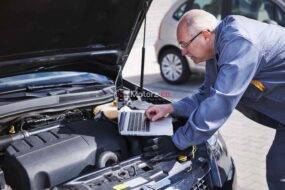HVAC Control Issues Address issues with climate control. However, even the most advanced HVAC systems can encounter issues that compromise their efficiency. In this article, we’ll explore common HVAC control issues and discuss effective solutions to ensure optimal climate control.
Thermostat Malfunctions:
One of the primary components of HVAC systems is the thermostat, responsible for regulating temperature. Malfunctions in thermostats can lead to inaccurate temperature readings or failed communication with the HVAC unit. This issue can result in uneven heating or cooling and increased energy consumption. Regular calibration and maintenance of thermostats are essential. Upgrading to programmable thermostats with smart technology can enhance precision and efficiency, allowing users to control the climate remotely.
Inconsistent Airflow:
Inefficient airflow can lead to uneven distribution of temperature throughout a space. This issue may be caused by clogged air filters, ductwork problems, or malfunctioning blower motors. Regularly change air filters, inspect ductwork for blockages or leaks, and ensure proper functioning of blower motors. Professional HVAC maintenance can identify and address airflow issues, optimizing the system’s performance.
Refrigerant Leaks:
Refrigerant is crucial for the cooling process in air conditioning units. Leaks can lead to a decrease in cooling efficiency, increased energy consumption, and environmental hazards. Regular inspections to detect and repair refrigerant leaks are essential. Technicians should also check and recharge the refrigerant levels to maintain optimal performance.
Sensor Problems:
Sensors in HVAC systems monitor various conditions, such as temperature and humidity. Malfunctioning sensors can lead to inaccurate readings and improper system operation. Regular sensor calibration and replacement, if necessary, can resolve issues related to inaccurate readings. Technological advancements, such as sensor upgrades or integration with smart HVAC systems, can enhance precision.
Electrical Control Failures:
HVAC systems rely on complex electrical controls for seamless operation. Failures in these controls can result in system malfunctions, including the inability to start or stop the unit. Regular inspections of electrical components, timely replacement of faulty parts, and adherence to preventive maintenance schedules can prevent electrical control failures. Investing in surge protectors can also safeguard the system from power fluctuations.
Poor Maintenance Practices:
Neglecting regular maintenance is a common cause of HVAC control issues. Dust and debris accumulation, worn-out components, and outdated technology can compromise system efficiency. Implementing a comprehensive maintenance plan, including regular inspections, cleaning, and component replacements, is crucial for preventing issues. Upgrading outdated components and adopting modern HVAC technologies can also improve overall performance.
Conclusion:
Addressing HVAC control issues requires a proactive approach to maintenance and a commitment to adopting modern technologies. Regular inspections, timely repairs, and the integration of smart HVAC solutions can ensure optimal climate control, enhance energy efficiency, and prolong the lifespan of HVAC systems. By understanding and addressing common control issues, homeowners and businesses can enjoy a comfortable and sustainable indoor environment.





